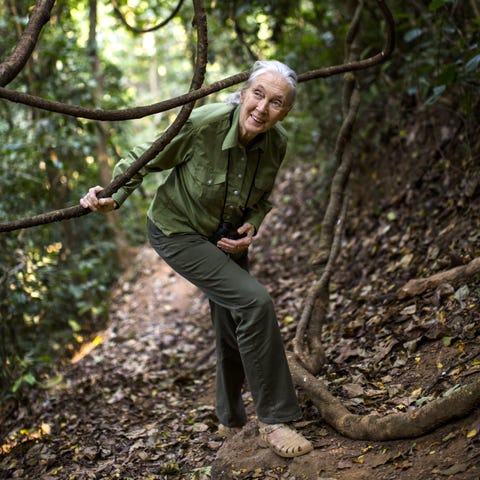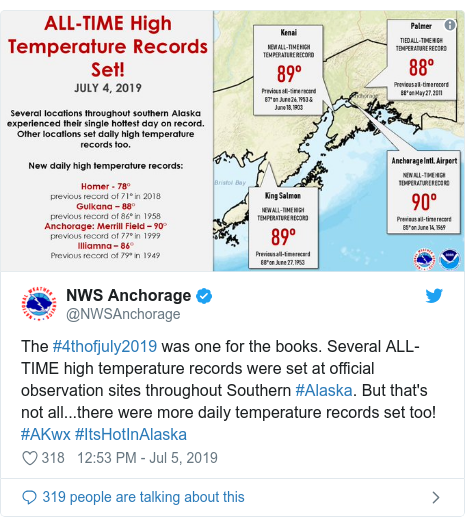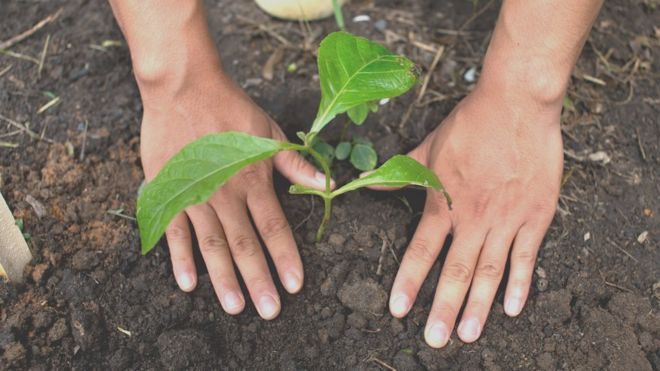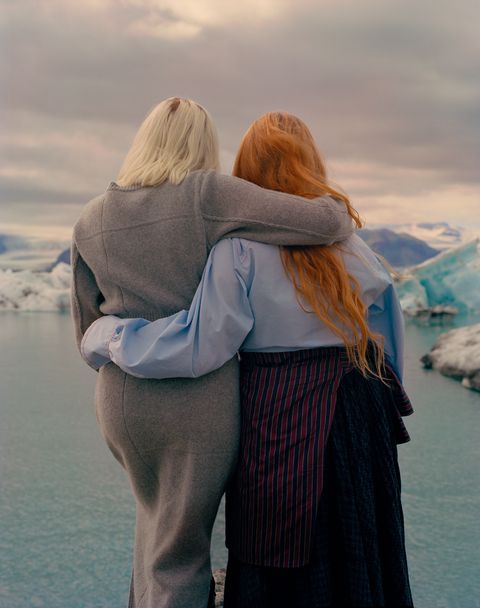Fifty-nine years ago, Jane Goodall, an animal lover with no formal academic training, traveled to Gombe, Tanzania, to observe chimpanzees for famed anthropologist Louis Leakey. Within months, the 26-year-old witnessed a chimp extracting termites from a mound using long blades of grass, upending mankind’s very understanding of itself: Humans were no longer the only species to make tools, no longer unequivocally superior. She went on to discover that chimps,like humans, have complex social and familial hierarchies, sharp intelligence, and deep-seated wells of emotion. Goodall has spent the rest of her life devoted to conserving the world they live in, one that’s disappearing due to climate change and the interests of big business. “What we’re doing to the planet is shocking and irresponsible, and it’s all done for making money,” she says. “We’ve got to understand we need money to live, but it goes wrong when we live for money.” At 85, the founder of the Jane Goodall Institute and UN Messenger of Peace travels over 300 days a year, spreading the gospel of conservation. She spoke to ELLE from the institute’s U.S. headquarters in Washington, DC.
 MICHAEL CHRISTOPHER BROWN
MICHAEL CHRISTOPHER BROWN
The kind of slow and steady observation you did for years contrasts so much with the fast-paced, technologically driven world we live in. Growing up today, would your story have been the same?
I think my story would have been very different. Screens, in a way, are killing us. I’d hesitate to say whether they totally stifle imagination, but they certainly would have stifled
mine. I read Tarzan when I was 10 and fell in love with him, and that’s what triggered my dream of going to Africa and living with wild animals. My mother saved up to take me to an early Johnny Weissmuller film, and after about 10 minutes, I burst into tears. I told her, “But that wasn’t Tarzan!” My imagination had created my own picture of Tarzan, and that’s something that the modern world certainly prevents children from doing.
Continue reading at:
Jane Goodall Talks Green New Deal, Tarzan, and Avoiding the Impossible Burger








